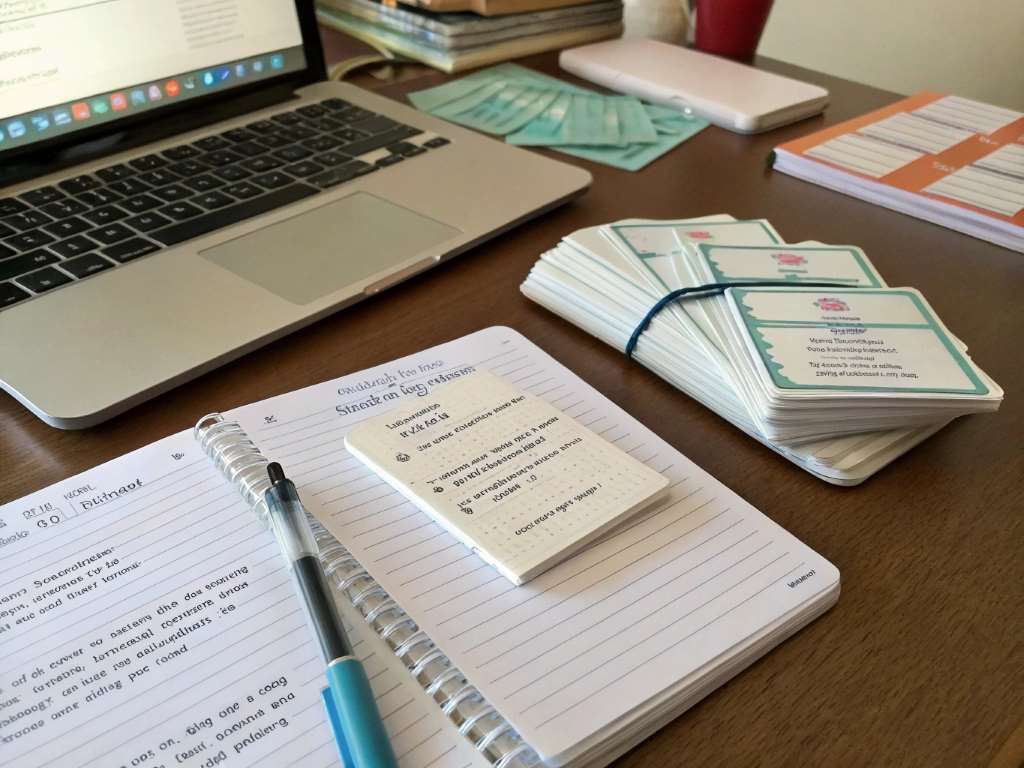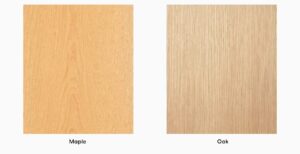What Is a Spaced Repetition System? Master Learning with SRS Flashcards

Have you ever crammed for a test only to forget everything a week later? I did this in college, memorizing biology terms overnight, but they vanished after the exam. Then, I discovered spaced repetition systems (SRS). These are learning tools that help you remember information long-term by reviewing it at strategic intervals. Unlike rote memorization, SRS uses science to make facts stick. Imagine studying less but retaining more—sounds great, right? This blog post explains what SRS flashcards are, how they work, and why they’re a game-changer for students, professionals, and lifelong learners. By the end, you’ll know how to use them effectively. Let’s dive in and explore how SRS can transform your learning.
What Is a Spaced Repetition System (SRS)?
A spaced repetition system is a method that schedules reviews of information at increasing intervals to boost memory retention. Instead of studying everything daily, you revisit facts just before you’re likely to forget them. This timing strengthens neural connections, making recall easier. For example, you might review a flashcard on countries to study abroad today, then in two days, a week, and a month. The system adjusts based on your performance—if you struggle, it shows the card sooner.
SRS is rooted in psychology. According to a 2016 study by the University of California, spaced practice improves retention by up to 50% compared to massed practice (cramming). Flashcards, often digital, are the most common tool. Apps like Anki or Quizlet use algorithms to optimize review schedules. When I started using SRS for Spanish vocabulary, I went from forgetting words daily to recalling hundreds effortlessly. It’s efficient because it focuses on what needs attention, saving time.
How Do SRS Flashcards Work?

SRS flashcards work by leveraging the forgetting curve, a concept introduced by Hermann Ebbinghaus in 1885. This curve shows how quickly we forget new information unless we review it. SRS counters this by timing reviews precisely. Here’s the process:
- Create or choose flashcards: Each card has a question (e.g., “What’s the capital of France?”) and an answer (“Paris”).
- Review actively: Test yourself and rate how well you recall the answer (e.g., easy, hard).
- Algorithm adjusts: If you answer correctly, the card appears later; if wrong, it shows up sooner.
- Repeat: Over time, successful recalls push reviews further apart, cementing memory.
Digital apps automate this. For instance, Anki’s algorithm tracks your performance and schedules cards. A 2020 study in Frontiers in Education found SRS users scored 30% higher on retention tests than traditional learners. I used SRS flashcards for medical terminology during a certification course. Initially, terms like “myocardium” stumped me, but after a month, I recalled them instantly. It’s like training your brain with precision.
Benefits of Using SRS Flashcards
Why choose SRS flashcards over other study methods? First, they’re efficient. By focusing on weak areas, you avoid wasting time on what you already know. Second, they improve long-term retention. A 2018 study by the British Psychological Society noted that SRS users retained 80% of material after six months, compared to 20% for traditional methods. Third, they’re versatile—use them for languages, exams, or even trivia.
Additionally, SRS is flexible. You can study anywhere, anytime, with apps on your phone. It’s also engaging. Turning study into a game-like challenge keeps you motivated. When I prepped for a history exam, SRS made memorizing dates fun, not tedious. However, it’s not perfect. Creating quality flashcards takes effort, and consistency is key. Still, the payoff is huge—better grades, sharper skills, and confidence in what you’ve learned.
How to Create Effective SRS Flashcards
Creating good flashcards is crucial for SRS success. Poor cards waste time, while great ones accelerate learning. Here are tips to make yours effective:
- Keep it simple: One card, one fact. Instead of “List all planets,” ask “What’s the third planet from the sun?”
- Use images: Visuals aid memory. For “photosynthesis,” include a plant diagram.
- Be specific: Vague questions confuse. Ask “What year was the Magna Carta signed?” not “When was it signed?”
- Test recall, not recognition: Write questions requiring active answers, like “Define osmosis” instead of “Is osmosis X or Y?”
- Personalize: Tailor cards to your goals. For coding, I made cards like “What’s Python’s print function syntax?”
When I started, I made cluttered cards with too much info—big mistake. Simplifying them doubled my progress. Tools like Anki let you add multimedia, boosting engagement. Spend 10–15 minutes daily crafting cards, and you’ll build a powerful study deck. For inspiration, check Anki’s official guide.
Tips to Maximize SRS Flashcard Learning
Using SRS effectively requires strategy. Here’s how to get the most out of it:
- Study daily: Even 15 minutes helps. Consistency beats cramming.
- Limit new cards: Add 5–10 daily to avoid overload. I learned this after overwhelming myself with 50 cards at once.
- Review honestly: Don’t mark “easy” if you guessed. Accuracy improves scheduling.
- Mix subjects: Study multiple topics to stay engaged, like math and history.
- Track progress: Apps show stats. Seeing improvement keeps you motivated.
A 2019 study in Learning and Memory found consistent SRS users outperformed irregular ones by 40%. Also, take breaks to avoid burnout. I schedule sessions before breakfast—it’s quiet, and my mind’s fresh. Experiment with timing to find what suits you.
Common Mistakes to Avoid with SRS
SRS is powerful, but mistakes can derail progress. First, don’t overload with new cards. Adding too many overwhelms you—I once added 100 in a day and burned out. Stick to 5–10. Second, avoid complex cards. If a question takes ages to answer, simplify it. Third, don’t skip reviews. Missing days piles up cards, making sessions daunting. Fourth, don’t rely solely on SRS. Combine it with practice, like writing or speaking for language learning.
Finally, don’t ignore feedback. If you keep failing a card, rewrite it—maybe it’s unclear. A 2021 study in Educational Psychology showed poorly designed cards reduced retention by 25%. When I studied French, vague cards like “What’s a verb?” frustrated me. Rewriting them as “Conjugate avoir in present tense” fixed it. Stay patient, tweak your approach, and SRS will work wonders.
My Personal Journey with SRS Flashcards
I stumbled on SRS during my final college year, drowning in notes for a chemistry exam. Cramming wasn’t cutting it—I’d forget formulas days later. A friend suggested Anki, and I gave it a shot. At first, I made every mistake: cluttered cards, inconsistent reviews, and skipping days. But after refining my deck and studying 20 minutes daily, I aced the exam. More importantly, I remembered concepts months later for a job interview. SRS didn’t just help me pass; it built confidence in my ability to learn anything. Now, I use it for everything—coding snippets, book summaries, even guitar chords. It’s like a personal coach for my brain, and I’m excited for you to try it.
Conclusion
Spaced repetition systems are a proven way to learn smarter, not harder. By reviewing flashcards at optimal intervals, you retain more with less effort. Whether you’re studying for exams, mastering a language, or picking up a hobby, SRS adapts to your needs. It’s backed by science, flexible, and—dare I say—fun. My journey from forgetting facts to recalling them effortlessly shows it works. Ready to try? Download an app like Anki or Quizlet, make a few cards, and start small. Share your experience in the comments below or spread the word by sharing this post. Let’s make learning unforgettable!
FAQs
What is the best app for SRS flashcards?
Anki and Quizlet are top choices. Anki’s free, customizable, and great for serious learners. Quizlet’s user-friendly with pre-made decks.
How long should I study with SRS daily?
Aim for 15–30 minutes. Consistency matters more than duration. Start small to build a habit.
Can SRS help with language learning?
Yes! SRS excels for vocabulary and grammar. It helped me learn 500 Spanish words in two months.
Are physical flashcards as effective as digital?
Digital is better for SRS because apps adjust timing automatically. Physical cards work but lack precision.
How many flashcards should I review daily?
Review 20–50, adding 5–10 new ones. Adjust based on your pace to avoid overwhelm.







